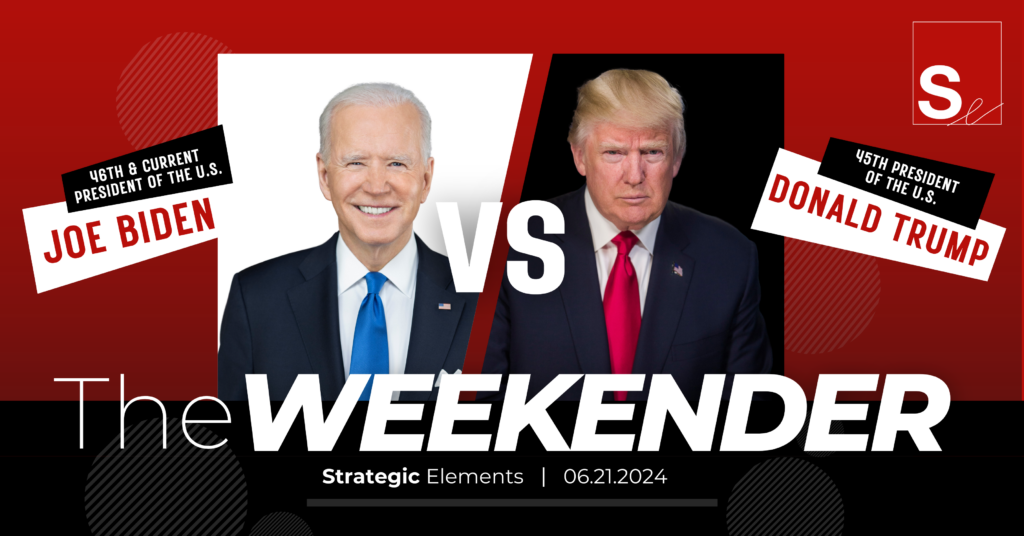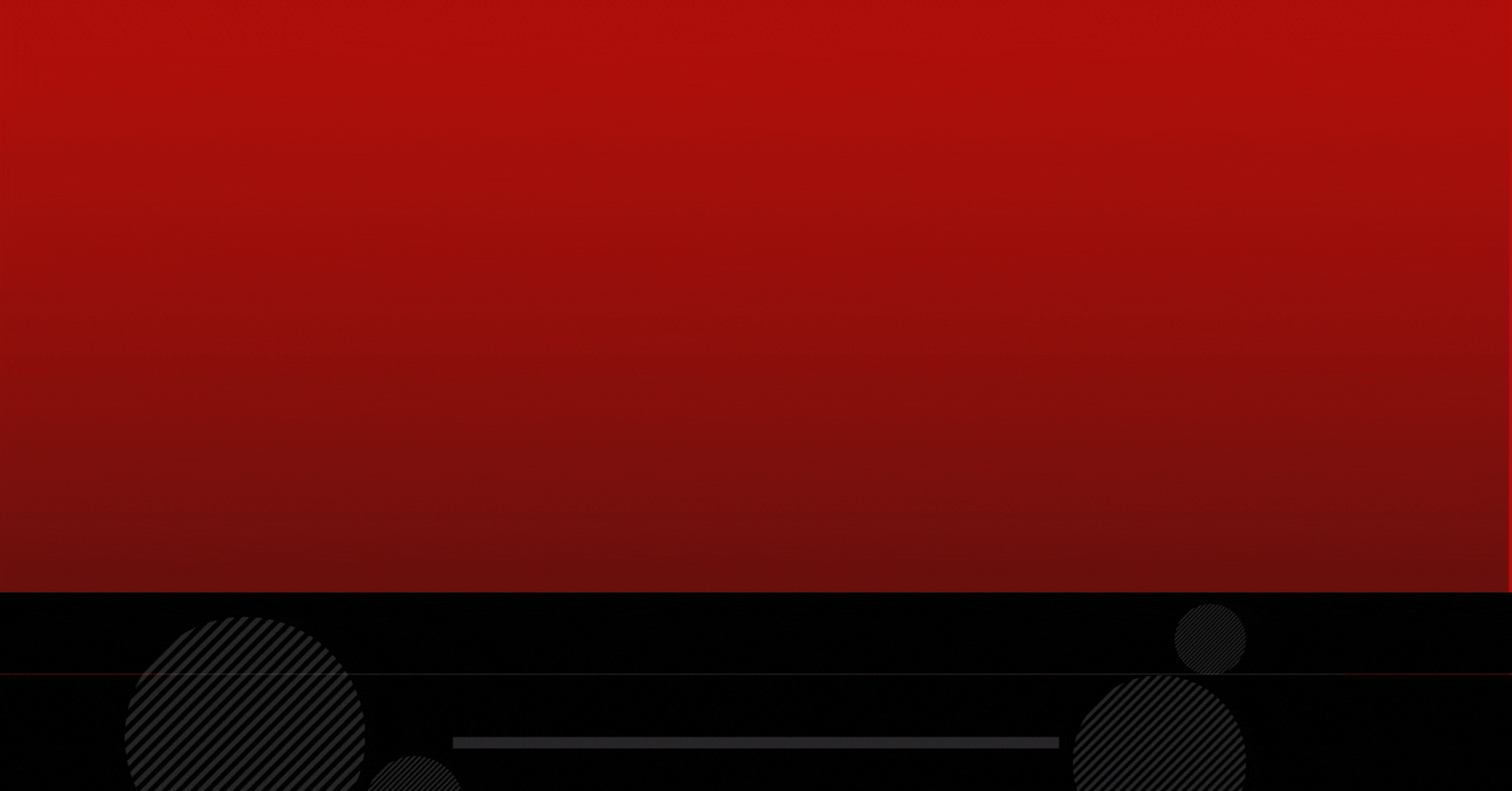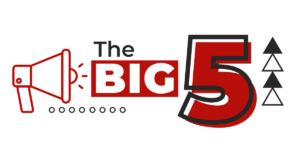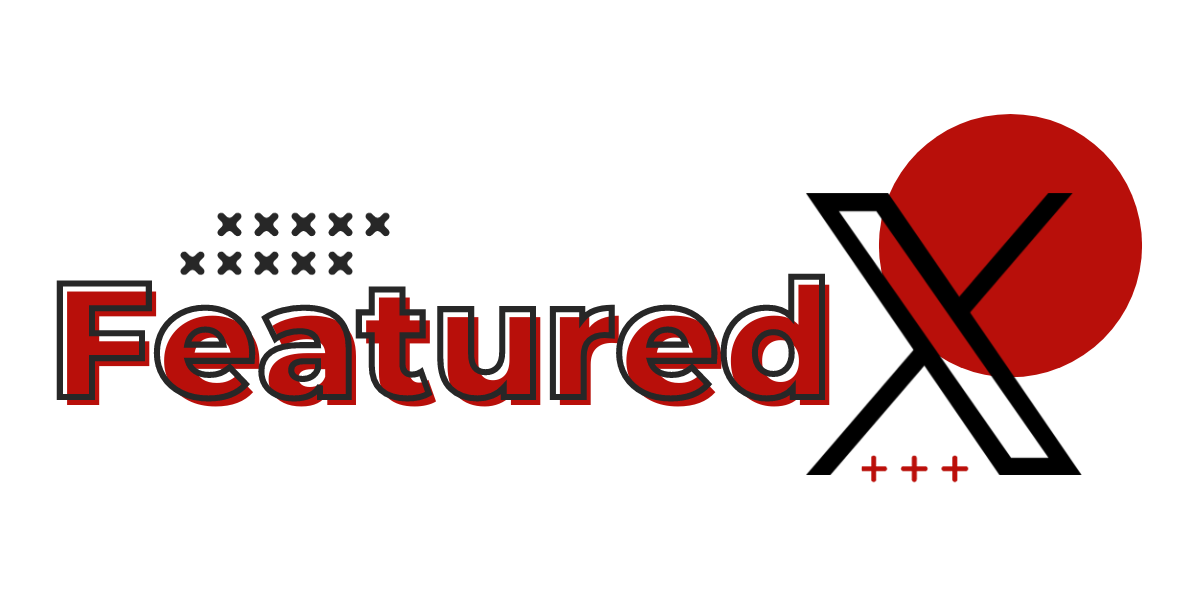DATA POINTS
- 16: The number of Nathan’s Fourth of July hot dog eating contests won by Joey Chestnut; who is now banned from this year’s competition
- 18: The number of NBA titles won by the Boston Celtics; the most titles in NBA history
- 26: The percentage of Americans who believe reclining your seat on a plane is unacceptable
- 136: The number of days until the presidential election
- 110,905: The number of attendees at George Strait’s latest concert; the largest ticketed show in U.S. history
- $155 Million: The estimated debut box office take of “Inside Out 2” – the second-highest opening of an animated film
June 27 Showdown
As a heatwave moves across the United States, the presidential campaign will come to a boil on June 27 when President Joe Biden and former President Donald Trump face off in their first debate. In preparation, Trump is holding policy discussions with senators, policy experts, and political allies to solidify his talking points on the biggest issues facing the country. With immigration, the wars in Ukraine and Gaza, and inflation top of mind for voters, Trump’s efforts to remain fully briefed on the latest news and strongest messaging will aid him during the event. While he may still rely on his fiery attacks, he is expected to prioritize policy.
This takes place as the Biden team aired new ads attacking Trump for his felony conviction following his hush money trial. The Trump team continues to attack Biden for his age and mental faculties, which may serve to lower expectations of Biden’s performance, but also set the stage for him to shine through with an exemplary performance like his electric State of the Union showing.
Biden is taking a debate-prep page from many of his predecessors’ books by heading to Camp David to prepare for the occasion. His campaign staff said he is searching for ways to hold Trump accountable for his track record on everything from reproductive rights to the economy. His strategic haymaker is expected to be asserting that Trump will be a dictator on “day one.”
Tune into the CNN Presidential debate at 9 pm ET on June 27. This will not be a primetime showdown you want to miss, but if you can’t catch the action live, The Weekender will provide an in-depth analysis.
WARNING: This Product Contains the Internet.

Not surprisingly, the big shots at Meta (aka Facebook), Google, and Amazon are firing back faster than a TikTok dance trend, arguing that these warnings oversimplify a complex issue and that parents are best suited to manage their children’s online activities.
While scientists agree that excessive social media use correlates with negative mental health outcomes in adolescents, there’s ongoing debate about whether social media directly causes these issues and how widespread the effects are. Murthy argues that despite research gaps, there’s enough evidence to justify taking precautions like those used in other public health areas.
Murthy’s call for warning labels is part of a larger effort to regulate social media like other risky products, with the goal to lessen its impact on youth mental health through increased scrutiny and new laws.
Read More at The Washington Post
From Moving Mice to Moving Jobs

This is especially difficult for remote workers, where determining an employee’s productivity is a tricky business. Employers want to know that workers are actively doing their jobs, but there’s no singular metric for determining worth. A task that takes one person several hours, another could do in 45 minutes. (We won’t indulge ourselves by including AI applications, like ChatGPT, in the conversation, but it should be considered.) Studies show that giving employees trust and freedom produces better results than closely monitoring them, but if trust is abused, consequences follow.
This challenge isn’t new and comes from a culture that values appearing busy over making meaningful contributions. With more people working from home, the pressure to seem productive has grown, often leading to burnout. Interestingly, measuring burnout is equally as difficult as unproductivity. For example, those working in-person jobs may see the hours an employee is working and read body language if overworked. Remote work omits these perceptions, which can perpetuate employee burnout, especially for those starting their careers. Looking ahead, workplaces need to find fair ways to measure success, keeping creativity flowing without burning out employees.
The Goldilocks Goldmine

The game of chasing mid-sized deals has bounced from the boutiques to the behemoths, as Bank of America doubled its middle-market investment banks to 200 over the past two years. With new opportunities turning up at every corner, America’s largest investment firms are fighting for new territory every day.
Read More at The Wall Street Journal
It’s Getting Hot in Here…

The heat wave brings serious challenges, including public health risks, economic impacts, and strain on infrastructure. Vulnerable populations such as the elderly and those without access to sufficient cooling are particularly at risk. The event highlights the increasing occurrence and intensity of heat waves due to climate change, emphasizing the need for adjusting measures and policy responses.
Even in its wide-ranging impacts, heat waves are currently not classified as major disasters under federal guidelines. This limits the ability to gather resources and funding for protective actions. Efforts are underway to advocate for changes in disaster classification to better address the growing hot mess in the future.
See you next week!
Be sure to follow us on Facebook, Twitter, and LinkedIn for more news and industry updates. To receive a copy of The Weekender in your inbox, sign up here.






